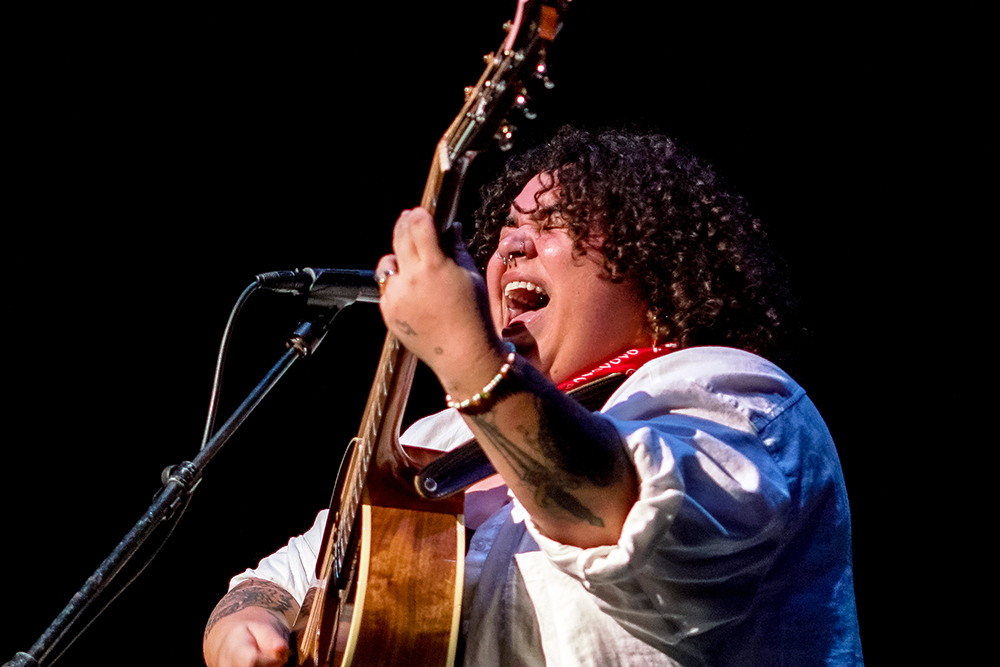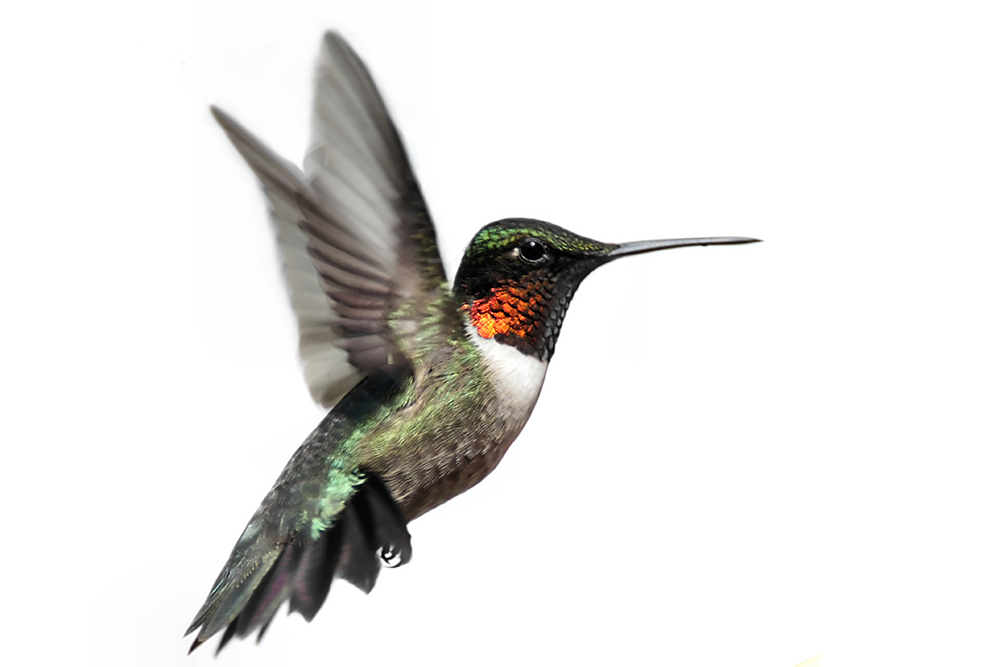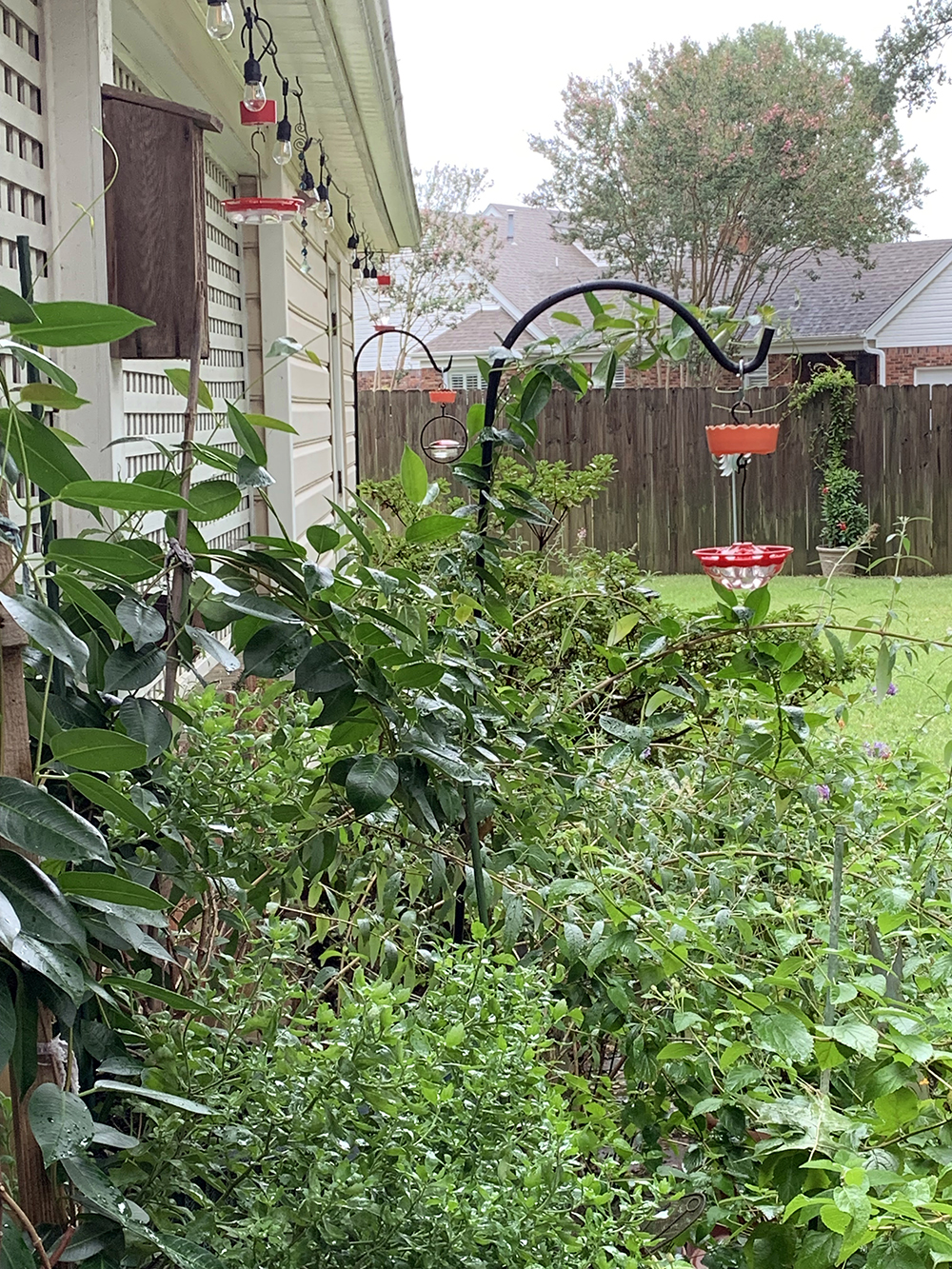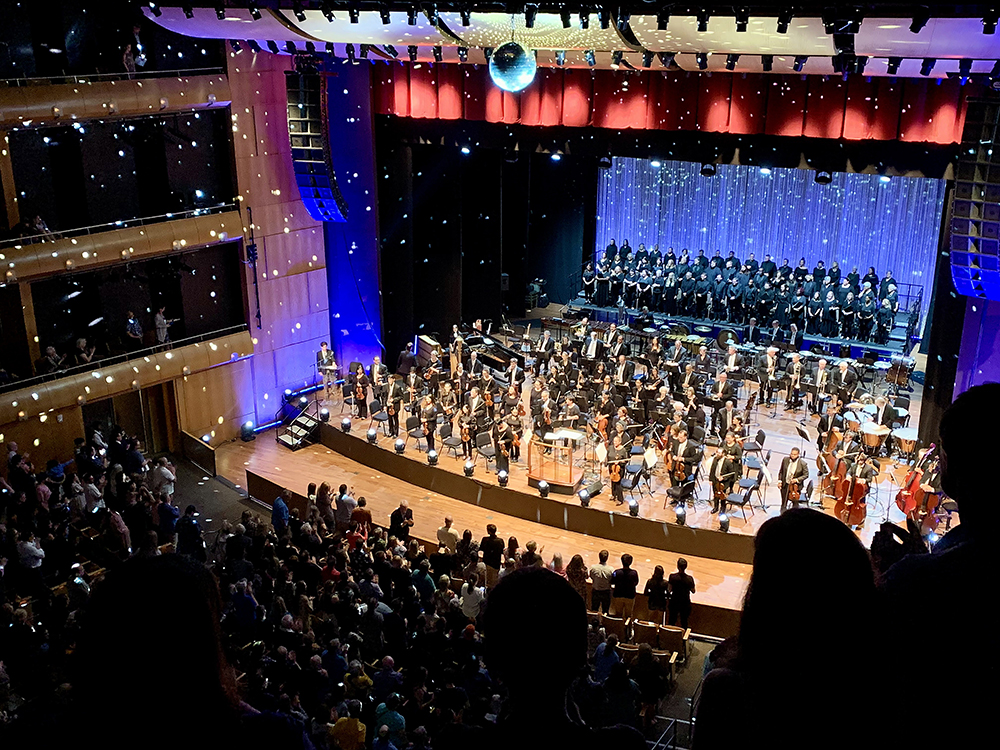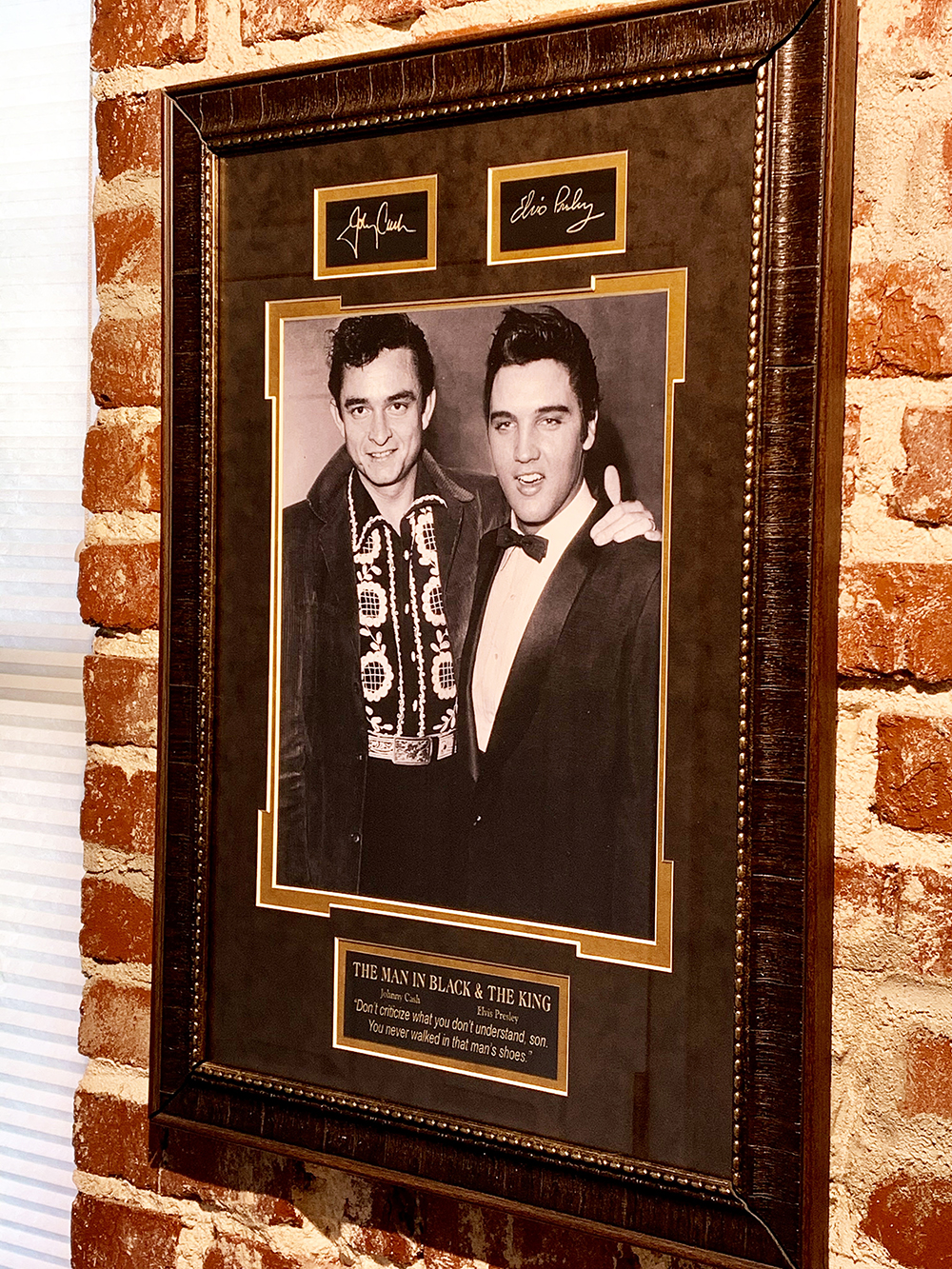Singer Shaun Murphy, formerly of Little Feat, had just finished her set as part of The Galaxie Agency’s “IBC Showcase,” held last Thursday afternoon at B.B. King’s Blues Club on Beale Street. During the lull between sets, my wife Vicki and I continued our conversation with the woman seated next to us. “I’ve never seen snow, before,” she said in a distinct Australian accent. “I live in Adelaide, which is in South Australia.” Snowfall at sea level is very rare, especially for a coastal Australian city like Adelaide.
The woman, wearing a Creamsicle-orange hoodie, went on to tell us that she’d visited several places in “the States,” but she hadn’t brought any cold weather clothing because she didn’t think it would get this chilly in the South. She hadn’t had time to go shopping for something warmer after arriving in Memphis.
Snow was forecast for Memphis and the Mid-South with predicted accumulations of five to eight inches. The woman had come to see a musician from her hometown of Adelaide compete in the 40th edition of the International Blues Challenge.
The Memphis-based Blues Foundation hosts the International Blues Challenge (IBC). Typically held in January, the annual event brings together blues musicians, fans, and industry professionals for what is essentially a week-long “blues convention,” featuring blues documentary screenings, roundtable discussions, award presentations, a free health fair for the musicians, showcase performances, and vocal/instrumental master classes conducted by blues veterans.
The challenge portion of IBC week featured mostly up-and-coming blues artists competing in two categories: Solo/Duo and Band. These acts came from all over North America and from around the world. The “challenge,” along with the other activities, took place around the Beale Street Entertainment District. This year, almost 200 acts from nearly 40 states and 12 countries performed in several rounds of competition. The musicians represented their local blues affiliates or sponsoring organizations — called “societies.” Many of the societies’ members traveled to Memphis in support of their artists, creating a home away from home atmosphere that, in many ways, is unique to the blues genre.
That atmosphere of home permeated everything on Beale, and the far-flung travelers created a temporary ecosystem dependent upon one element — a love of the blues. Community is key to blues music and once you were on Beale Street for IBC, it was easy to become a member of that community and feel right at home.
After all, Memphis is the “Home of the Blues.”
Following Galaxie’s afternoon showcase, we made our way down Beale, stopping in at several clubs along the way to take-in performances. More than a dozen Beale Street locales served as venues for the nightly challenges. From Blues City Café to Alfred’s, Beale was alive with the blues. Fans and supporters came together over three consecutive nights to hear great music and have a good time.
In the Corner Bar at Club Handy, we ran into an old friend and blues musician extraordinaire, Mick Kolassa, aka Uncle Mick, who was one of the judges for that venue’s Solo/Duo performers. IBC challengers are rated according to such criteria as musicianship, vocal abilities, and stage presence. John Klaver, representing the Dutch Blues Foundation, played an extraordinary set, and Vicki talked with him afterwards. Klaver is a friend of Vicki’s first cousin, Mark Zandveld, an accomplished jazz bassist from Amsterdam, and Cousin Mark had given us a heads-up that Klaver would be in Memphis for IBC. Maybe Vicki’s quick “hello” helped Klaver feel at home.
Internationally, blues music is as popular as ever, and fans (and musicians) from abroad love to visit Memphis and the Mississippi Delta. There’s a certain Memphis mystique that the world wants to experience firsthand. Australian Frank Sultana, the IBC’s overall 2023 Solo/Duo winner, came back for a visit this year. Sultana said he not only loves coming to Memphis, but that when you’re here you feel “a connection to that [early blues] era, remembering when it all happened.”
That connection to the origins of the blues, along with the mystique, also fosters a sense of community — of feeling like home.
Sultana went on to say that the “connection to the blues” now comes “from everywhere [around the world],” including his home country of Australia, which sent seven acts to Memphis for this year’s IBC.
Thursday night ended with a couple more stops to check out the music and to say “hello” to more old friends. We were feeling part of the blues community, an ecosystem fed by great music and good times.
Then the snow came.
Friday morning was white, very white. And cold, very cold. Vicki reminded me, several times, that she hates snow. “Nice to look at,” she said, “from inside.”
We finally ventured out around 1:00 p.m. and sloshed our way back to the Beale Street ecosystem through six inches of snow and slush. Workshop classes and more showcase performances were already underway. Later that same evening were the semifinal performances.
Saturday brought continued chill with some sunshine for the IBC Finals, held in the historic Orpheum Theatre. The international blues community was well represented with five acts, including two from Australia. Regarding that global representation, Bob Kieser, the publisher of Blues Blast Magazine and a recent recipient of the Blues Foundation’s Keeping the Blues Alive Award, said, “IBC has evolved into quite an international event [and] shows the continuing importance of blues in shaping artists across the world.”
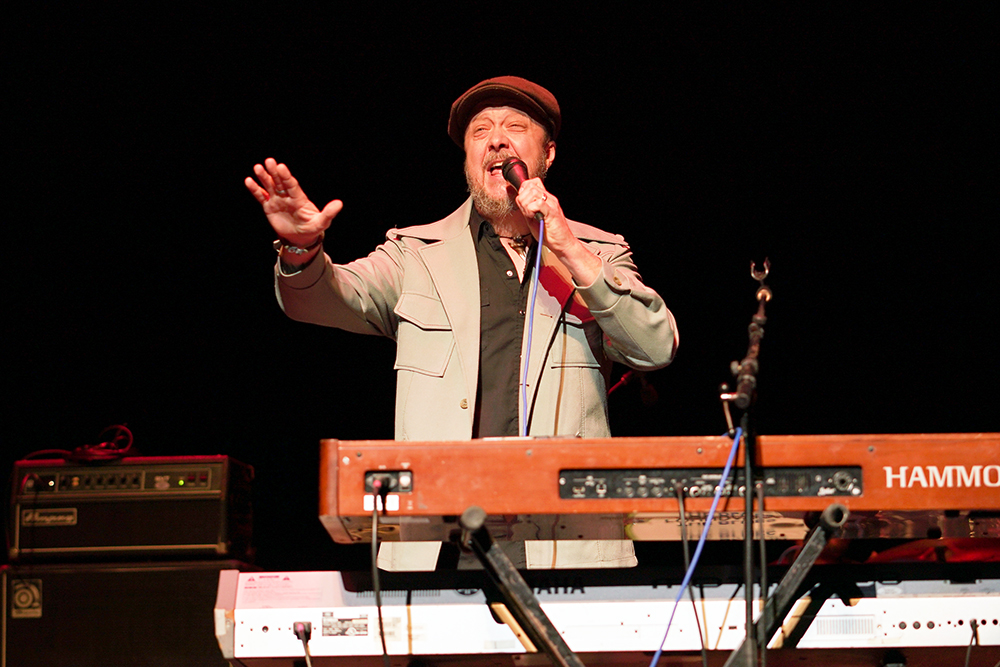
Dutchman John Klaver was a Solo/Duo finalist, but Joce Reyome of Canada won that category with an incredible onstage performance. In the Band category, Josh Hoyer & Soul Colossal, representing the Blues Society of Omaha, Nebraska, took first place.
During Saturday afternoon’s performances, Nardia, a band out of Melbourne, Australia, broke into their song “Long Way From Home.” I looked around at the Orpheum’s audience and let IBC week soak in — the stellar music performances, the atmosphere, and that feeling of community.
Home can be wherever you make it, and for one week in January the worldwide blues community came home to Memphis.
